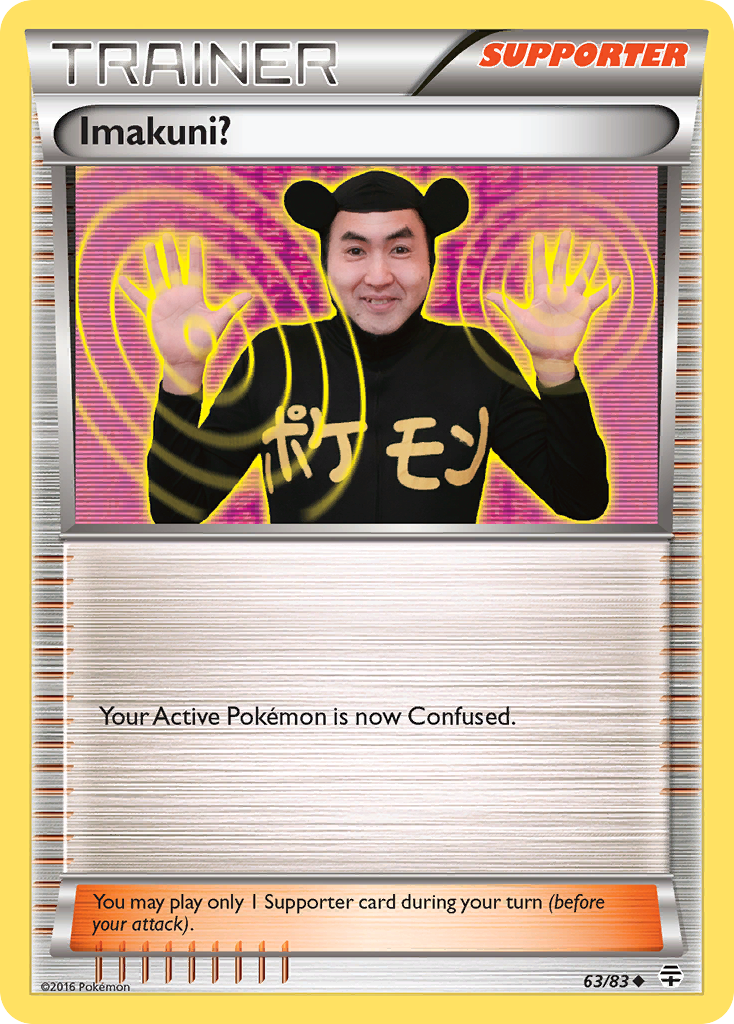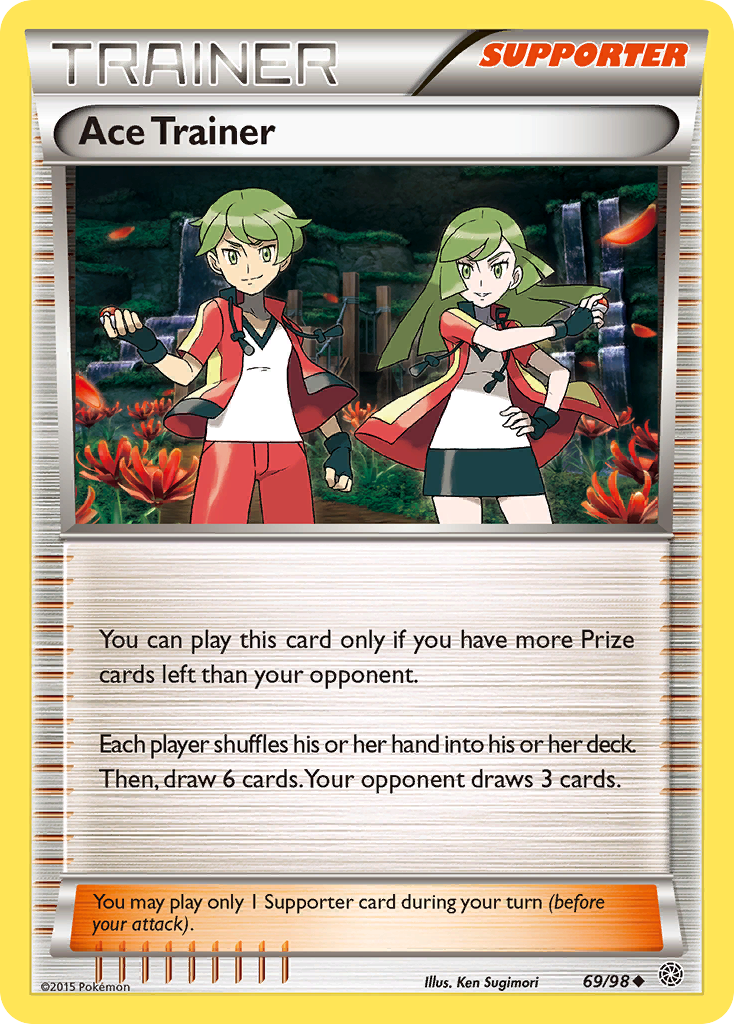How to Manage Time and a World Championship Recap
What's up PokeBeach? After a long hiatus due to exams, I'm finally back to talk to you about the game we all love to play, and one interesting part of Pokemon that has been getting a lot of attention recently. Ever since the introduction of ties in the game, there has been a significant increase in the amount of discussion about time management within the Pokemon community.
If you're a fairly experienced player you should be well aware of the issue of time-stalling. This is where a player will intentionally decrease their pace of play in a situation where they either won game one and know that if they play slow enough they can force a win when time is called, or where they are losing and their only option is to slow play and try to cause a tie. This is of course against the rules, however, it is difficult to draw a line when it comes to this kind of situation because there are only vague time guidelines to go by.
For the second half of this article, I wanted to briefly touch on two unexpected decks that made a big impact at the World Championships last weekend. These decks being the Yanmega BREAK deck that my friend Jesper Eriksen managed to pilot to first place in the Senior division, as well as the M Audino-EX deck that Shintaro Ito used to take the Master's champion title with.
Speeding Up Your Play
If you plan on entering any kind of premier event you're almost guaranteed to face this issue at some point, so it's important to know how you can do your best to prevent your deserved wins turning into ties. I'm sure that slow play will be a factor in many of your tournament games, especially during the later rounds due to the fact that a lot of high-level players can manipulate time in their favor very well. With all that said, I'm now going to list a few ways that will help you cut down on time and reduce the number of ties you come across in your tournaments.
Optimize Your Shuffling Methods
There has been a lot of controversy surrounding the way that players shuffle. Specifically, whether or not pile shuffling is the most efficient way of randomizing your deck before your games. A lot of players don't like to be told that pile shuffling is a waste of time because it is something that they have been told to do ever since they played their first game of Pokemon. Hopefully, by the end of this section, I'll be able to convince you that this method is really just a waste of time compared to the far more refined riffle and mash shuffle.
A Pile Shuffle Results in a Less Randomized Deck
A pile shuffle is generally defined by arranging your deck by placing each card in different piles (usually seven) and then shuffling all the piles together. In actuality, this is just arranging your deck in a certain order (the exact opposite of randomizing) and then performing a mash shuffle. One pile shuffle like this is the equivalent of one mash / riffle except it can take ten times longer to perform. This means that in the time it takes you to randomize your deck this way you could have achieved this effect ten times over. Generally, even if my deck is entirely in order, it will only take me eight riffles until my deck is in a decently random arrangement, and on average that will only take me around thirty seconds. On the other hand, pile shuffling my deck generally takes me around 60 seconds and leaves my deck in a much less desirable order where many sets of the same cards are still next to each other.
Pile Shuffling Generally Results in More "Clumps"
Carrying on from my last point, I've found when testing hands for this article that when I do a pile shuffle, even when followed by a few riffles, my deck tends to lack the same consistency that it gets when I simply stick to riffling. This is because when you put your deck in a certain order you really aren't doing much to separate certain sets of cards. When you start from a fully ordered deck it will take you multiple pile shuffles until your deck is anywhere close to being randomized enough to play out a game. Once again, a few riffle shuffles will easily prevent this kind of clumping and will take less time.
A Few Seconds Can be the Difference Between a Win or a Tie
Ever been in a situation where you needed just one more turn for a win? I have, and in those situations, an extra minute would have really made a difference. If you play a full three games out you will end up doing a pre-game shuffle three times (shocking I know), and if you and your opponent riffled instead of piled each time then you could have saved around two minutes which could significantly impact the point in the third game at which time is called. It might not seem like a lot, but when you only have 50 minutes to try and play out a best-of-three, those few minutes can really make a difference.
Conclusion
Overall pile shuffling is a worse way of randomizing your deck than riffle shuffling and it can take up a lot more time in a game where you barely have long enough to play as it is. I've had many tournament games where choosing to stick to riffling rather than doing piles has helped me out a lot, either due to the better randomization of my deck or the extra time I saved. If you need any more convincing two of the best players in the game, Jason Klaczynski and Michael Pramawat, also feel the same way about shuffling and as a result, neither of them pile shuffle in tournaments.
Learn Your Deck
I know this seems obvious but there's more to this than the average player realizes. Learning how to play your deck is crucial to not only your performance with it and the quality of your plays, but knowing every aspect of the deck you want to play inside and out will also increase the pace at which you make moves. Usually, if you're taking a lot of time to figure out what to do in certain situations it means that you don't know your deck as well as you maybe should.
Most players that I know will value theory over practice, and think that having a rough game plan going into each match as well as a bit of practice will be enough to get them through the tournament. While it's true that theory is a very important part of the game, and knowing how you should approach different matchups is an absolute must, you can't expect to play optimally when you favor it over testing.
One thing I tend to notice from these types of players is that they play practically perfect when they're ahead, but struggle to play from behind. This is because you can't really theorize how you can come back from being behind in the game because when you're behind it could mean anything; you could be struggling to find Knock Outs, dead drawing, having to spend your turns catching up rather than moving forward, etc. The only thing that can prepare you for situations like this is heavy testing. I've even played practice games with friends where we set up a situation before the game so one player has to see how they can come back from a bad spot.
What does this have to do with time managing you ask? Well knowing how to deal with situations like this means that you will spend considerably less time thinking and being inactive, and a lot more time making moves. I'm sure we've all watched games where a player sat there for a few minutes doing very little and this usually results in them being asked to hurry up. Those minutes over the course of a game really do add up, and being able to avoid sitting there and wasting time trying to figure out the best course of action could save you enough time to turn a tie into a victory.
This concludes the public portion of this article.
If you'd like to continue reading, consider purchasing a PokeBeach premium membership! If you're not completely satisfied with your membership, you can request a full refund within 30 days.
Each week we post high-quality content from some of the game's top players. Our article program isn't a corporate operation, advertising front, or for-profit business. We set our prices so that we can pay the game's top players to write the best content for our subscribers. Each article topic is carefully selected, goes through multiple drafts, and is touched up by our editors. We take great pride in our program!



